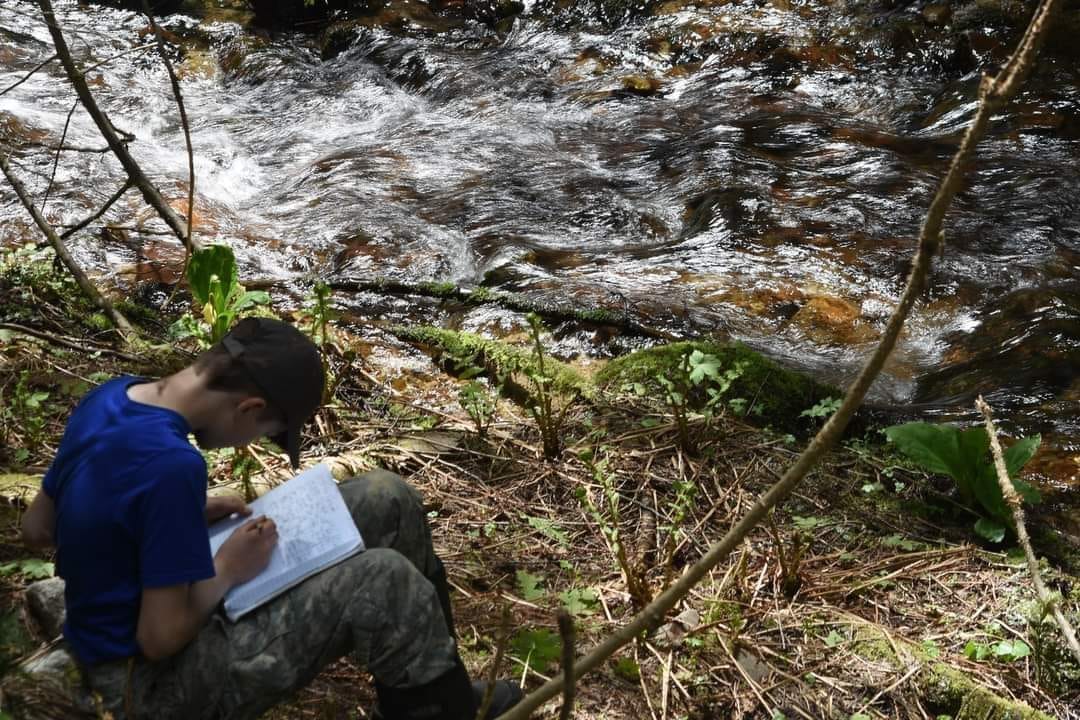Greatest Generation 2.0 – Column by Brian D. King
My work revolves around training students to embody the habits that will make them prosperous good husbands, fathers, statesmen, and elders in their community. As I shared before, I have spent the last four decades reverse engineering statesmen that made positive impacts on the people they represent. Common to these men were a devotion to God, family, fiscal responsibility, their vocation and hobbies, and health and fitness. These facets are used to teach habits and skills to grow students into men who truly possess the quality of manliness. These facets are also the vehicles for students to learn the academic skills of math, science, English, history, etcetera.
Dwight D. Eisenhower, George Washington, and nearly all public school students before 1962, developed the habit of devotion to God and family. US schools taught the importance of God and family previous to 1962.
After World War II and before running for president, Eisenhower wrote in his autobiography, “My days were structured around chores and Bible study.” George Washington’s father passed away when the young Washington was eleven years old. Shortly after, his mother turned over half the farm’s operational management to George, and the other half to his brother. His formal education stopped, but not his Bible studies. Therefore, his days also were focused around chores and Bible study.
Most of the Greatest Generation, and generations that came before them, learned to read from the Bible. It is interesting to note that the rate of illiteracy in the United States in 1870 was 20 percent, according to the National Center for Educational Statistics. By 1970, illiteracy dropped to 0.7 percent. That sounds pretty good, however, the reading comprehension level also dropped, and 54 percent of adults now read below a fourth grade level.
Why did reading comprehension drop? Previous to public education, kids learned to read from the Bible, and at school the students (including the Greatest Generation) learned to read and write from the New England Primer which was interjected with scripture. Also, the King James Bible takes work to read to understand, and most Biblical scholars agree that reading the King James Bible takes a twelfth grade comprehension level.
Additionally, most teachers before 1962 started the day with prayer. That all ended with the Johnson Act of 1962. Lyndon B. Johnson wrote the act when he was a senator, and it effectively removed prayer and scripture from public schools. If we look at indicators of prosperity, and more importantly morality, we will see teen pregnancy, petty crime, violent crime, and fathers abandoning the mothers of their children (i.e. abandoning their children) has all been on a rapid incline since 1962.
So what have we done at our school to address this? Each morning a student is responsible in leading the Lord’s Prayer, and another in writing and giving the invocation. One of our required books is The Founders Bible (David Barton) which is read not only to learn scripture, but also to learn the importance of God in both the lives of the founders and framers and in the establishment of our government and the protections the state and US constitutions guaranteed the people. You cannot truly know about the founding of the colonies and the formation of our government without reading their words and the scripture these men referred to.
Students then separate out of sight of each other under the forest canopy to read and copy some scripture. They also take an hour and simply observe nature, the creation of God, then journal their observations. They return to the campfire and share their observations and scripture.
Then they get some rough and tumble play, I will speak to the importance of this in another column. After they return from play, it is time for chores.
Kids with strong family ties thrive and our students are in a mixed age group of only seven; it resembles the families typical of the Greatest Generation. When the staff and students circle up at the beginning of each day as part of our daily routine, each person has the attention of everyone to share something with the group.
This seemingly insignificant activity can be magical and truly helps the students and adults bond as a family.
What also helps this family bond is doing chores. Kids who have the responsibilities of chores starting at a young age, and are not expecting anything in return, walk taller knowing they have truly contributed something to the family.
My next installment will go deeper into family and the long term benefits of the responsibilities of doing chores.
















